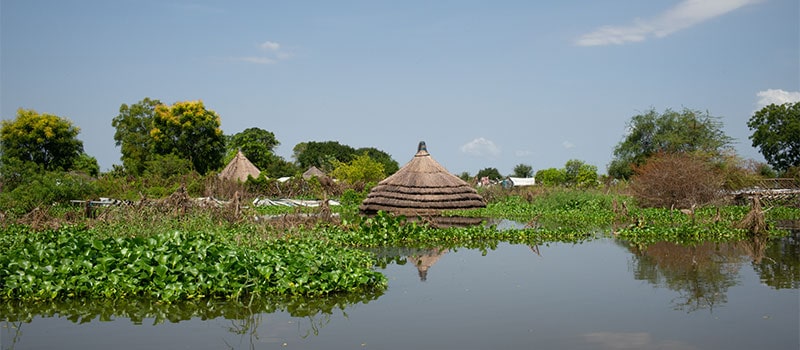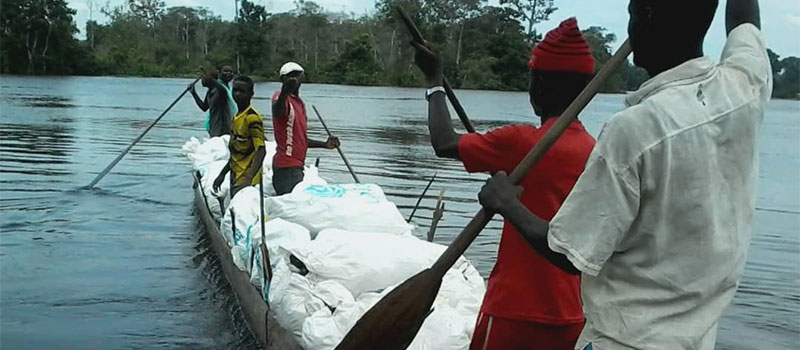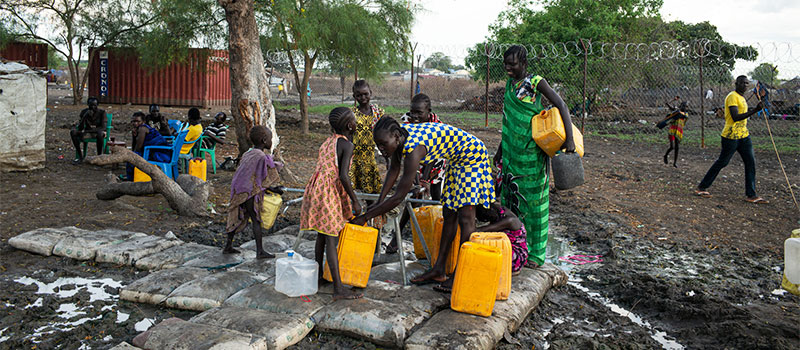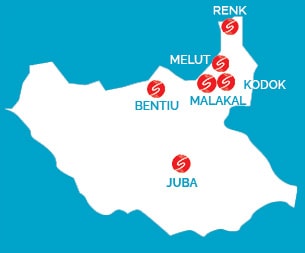In 2019, the rainy season was particularly significant and persistent in many parts of Africa. More than one million people were affected by unprecedented flooding. SOLIDARITÉS INTERNATIONAL deployed emergency responses to provide aid and access to basic services for these populations and prevent the worsening of an already very precarious health situation.
Rising water levels during the rainy season are a recurrent phenomenon to which many African populations are accustomed. However, the scale and intensity of this year’s floods on the continent had not been observed for more than 40 years, due to an exceptional climatic phenomenon and unpredictable weather conditions.
Thanks to an Emergency preparedness mechanism, SOLIDARITIES INTERNATIONAL was able to deploy rapid and multi-sectoral assessments in the affected areas. This mechanism makes it possible to target the most vulnerable people giving them access to drinking water, rehabilitating individual, family and institutional toilets, and distributing emergency water, hygiene and sanitation kits (buckets, jerrycans, tissues, soap, aquatabs…) while taking into account women and girls needs.
In South Sudan, nearly 1 million people among the local, displaced and refugee populations in the North and East of the country have been affected by flooding. In Pibor, 150 000 inhabitants have been cut off from the world. Transport infrastructures are already scarce or of poor quality in South Sudan, and the heavy flooding has made the delivery of humanitarian aid very complex and difficult:
“The floods have covered entire communities and made access to basic services or markets impossible. Roads are unusable, crops have been destroyed. People are extremely vulnerable to outbreaks of malaria and water-borne diseases such as cholera. Humanitarian aid is very time-consuming because the roads and the airstrip are unusable. Everything has to be done by helicopter. ” Quentin Veuillet, WASH Emergency Preparedness and Response (EP&R) Program Manager in South Sudan.
South Sudan
Context and action- 12.44 million inhabitants
- 191th out of 191 countries on the Human Development Index
- 388.560 people helped

In other countries, such as the Central African Republic (CAR) and Cameroon, dugout canoes were the only possible means of access to disaster areas.
“Our Emergency Response Team was immediately informed of the disaster by our focal points on site and was dispatched to the areas to carry out a rapid needs assessment. ” explains Serge Aboudrahum BORO, Rapid Response Mechanisms Manager in CAR « But of the nine villages affected around the town of Mougoumba, eight were totally inaccessible by road. To cross the river and get from one side of the bank to the other, vehicles and trucks would have had to be transported on a motorized boat. Since the motorboat broke down during the intervention, the crossing of the river was done by dugout canoe without a motor, making it longer to assess needs and distribute emergency kits.
In this locality, the rising waters forced 1 175 affected households to seek suitable places outside their respective localities in order to seek shelter from the disaster. People were taken in by host families and others gathered in schools and churches while waiting for the water to recede.

« Nearly 6 634 people were left without access to a source of food as the fields were flooded. The few sanitation facilities in the locality filled with water, allowing excreta to rise to the surface. Wells, springs and boreholes were also flooded, forcing the community to consume surface water directly, significantly increasing the risk of contamination with waterborne diseases.» Serge Aboudrahum BORO, Rapid Response Mechanisms Manager in CAR
In addition to the displacement of populations and the destruction of habitats, SOLIDARITÉS INTERNATIONAL ‘s Emergency Response Teams were particularly involved in combating the spread of waterborne diseases and preventing the risk of malnutrition due to the destruction of food stocks. “One family explained to me that the only latrine in the area is full and unusable and that they have no choice but to relieve themselves in the open air. And since most of the boreholes have been submerged, the water is now contaminated. In addition, the stagnant water is an ideal refuge for malaria-carrying mosquitoes. ” says Quentin Veuillet in South Sudan.
A total of 2 350 Non-Food Items (NFI) kits, intimate hygiene kits, home water treatment kits for a period of two months and 1 175 boxes of energy biscuits were distributed to affected households in CAR.
SOLIDARITÉS INTERNATIONAL also set up a SWAT (Surface Water Treatment) system in Pibor, South Sudan, providing 10m3 of emergency drinking water per day to the inhabitants, benefiting about 1 500 people daily. The water points will soon be rehabilitated.

SUPPORT OUR ACTIONS
Header picture : Quentin Veuillet / SOLIDARITES INTERNATIONAL

